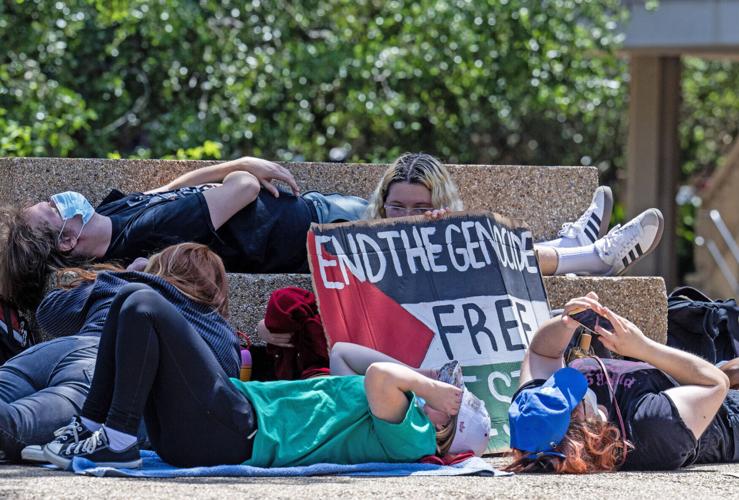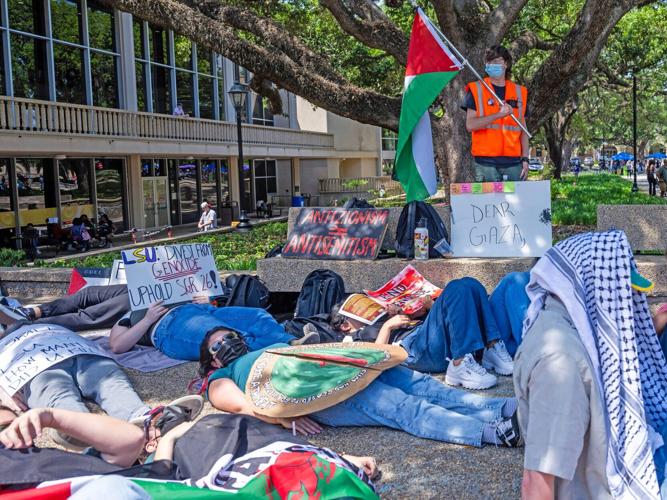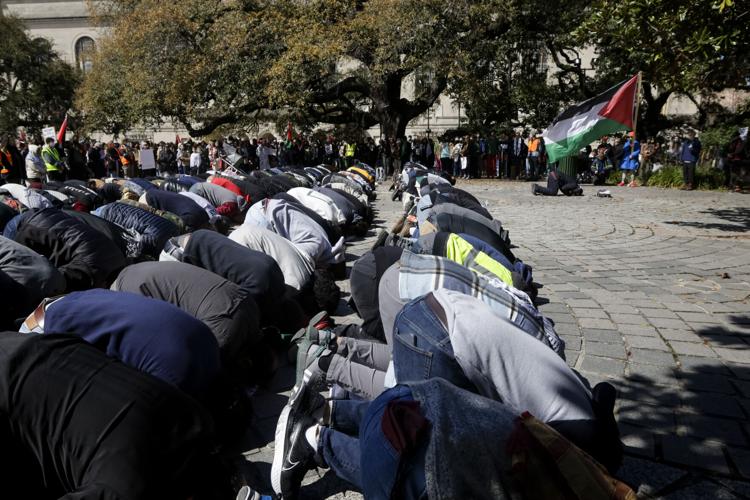What has recently happened at Columbia University, New York University and the University of Texas at Austin has not happened in Louisiana. Yet.
The Oct. 7 attack on Israel stunned the world. Hamas fighters broke through the Israel-Gaza defense fence via air, land and sea, and some 60 incursions unleashed mayhem with military precision — and barbaric brutality.
The ensuing war — which many fear could become World War III — has divided families, friends, communities and college campuses.
Some campuses, like Columbia and the University of California at Berkley, have long histories of student unrest. Some students apply to those schools because they have strong opinions and want to find opportunities to express them. Many are drawn to prestigious private and flagship state institutions.
Louisiana has seen some demonstrations. One shut down traffic on Poydras Street in downtown New Orleans a few days ago. Others marched on or near the LSU and Tulane University campuses.
Tulane is our state's most elite, prestigious private university. It has a national brand, a loyal alumni base — and a significant Jewish student population. Tulane doesn't publicize that statistic, but, Adam Lehman, president and CEO of Hillel International, called Tulane "a school with one of the highest percentages of Jewish students, one of the most active Hillels in the country, and many other positive contributors to Jewish campus life and experience."
LSU has long had a student population with diverse political perspectives, but it's generally considered an apolitical campus. It has an attractive national brand and strong social media engagement.
According to Rival IQ, a company that tracks higher education social media engagement, the University of Iowa has led the nation in social media engagement for five years in a row. LSU also ranks among the country's leading social media institutions, especially on TikTok, a favorite of 25-to-34-year-olds. A whopping 76% of people aged 18-24 use the platform.
LSU saw a pro-Palestine march last spring, a demonstration last fall and a protest rally on Thursday. Nationally, one estimate indicates America has seen about 8,000 pro-Palestine demonstrations and about 2,000 pro-Israel demonstrations — on and near campuses, and elsewhere.
Many students don't get involved. That doesn't mean they don't care. It's likely they're focused on academics, extra-curriculars, jobs that help them stay in school, or even their young children. Those matters are much closer to home than a war thousands of miles away.
People got arrested at the pro-Palestinian protest near Tulane, but they were not students. In recent weeks, student protesters at Columbia and on other campuses have been arrested, triggering First Amendment and free speech concerns.
I get that. But, in a number of cases involving campus protests, the protest organizers negotiated parameters with campus administrators so everyone was clear on the boundaries. Tulane didn't sanction the fall protest. LSU knew about the Thursday protest, and it was prepared.
In recent days, Columbia and other institutions called in police to arrest protesters. I get that, too. I'm pro-free speech and pro-First Amendment, but university leaders are responsible for keeping their campuses safe. Push too hard, without agreement or notice, and things like this can happen.
"It is a complicated issue," Dillard President Dr. Rochelle Ford told me. "Our campus is more concerned about the people and not the politics. ...We're pro-peace and pro-people. ...We want the suffering to end."
I'd say it this way: We can be pro-Palestine and pro-Israel as well as anti-death and anti-hate.
Ford said Dillard classroom professors have actively engaged in discussions about the war. Dillard were featured in the Washington Post with the headline: a story about DU relaunching its National Center for Black-Jewish Relations.
As long as the Mideast war continues, people will harbor strong opinions and want to express them.
As long as Gaza residents endure food shortages, starvation and death from upheaval and warfare, people will harbor strong opinions and want to express them.
And as long as Jewish and Israeli students are threatened, targeted or attacked, people will harbor strong opinions and want to express them.
What we've seen elsewhere could happen here.
Louisiana's higher education chancellors and presidents must walk a fine line. They must intentionally and strategically allow their campuses to respect free speech AND protect students from abuse and violence — without calling in police dressed in riot gear, and without having students arrested.
It's a delicate balance. Our private and public higher education boards have tapped university presidents and chancellors to lead — during times of peace and stability as well as times of war and unrest.

























